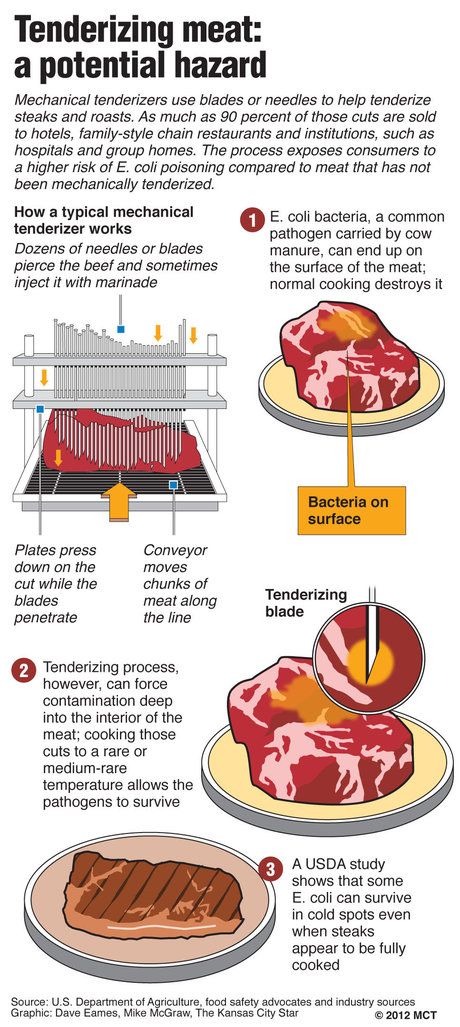HSBC’s $1.9 Billion Settlement and the Men on the Hill
By Pam Martens, Wall Street On Parade
December 11, 2012
Today, the U.S. Department of Justice and multiple other U.S. regulators will tie all that up with a tidy red bow for a settlement of $1.921 billion; a small nick in HSBC’s profits of $22 billion last year. HSBC released a statement saying it was “profoundly sorry.”
During the July 17 Senate hearing on HSBC, Subcommittee Chairman, Carl Levin, questioned Chistopher Lok, the former head of global banknotes at HSBC Bank USA, about internal emails from HSBC that the Senate had in its possession.
In the first email, a subordinate tells Lok that a proposed bank customer has a “know your customer” profile that “documents various allegations of fraud, internal control weaknesses, and the FBI investigation into terrorist financing…” The colleague was inquiring if a special security status should be placed on this account. Lok responds in an email: “…this is such a large bank hence malfeasance is expected” and recommends no special security status.
…
- HSBC Bank USA, N.A., known as HBUS [pronounced H-Bus] functions as the U.S. nexus for HSBC’s worldwide network. HSBC has 7,200 offices in more than 80 countries and 2011 profits of $22 billion; HBUS has 470 branches across the United States with 4 million customers. HBUS provides accounts to 1,200 other banks including more than 80 HSBC affiliates.
- In 2010, HSBC was cited by its federal regulator, the Office of the Comptroller of the Currency (OCC), for multiple severe anti-money laundering deficiencies, including a failure to monitor $60 trillion in wire transfer and account activity; a backlog of 17,000 unreviewed account alerts regarding potentially suspicious activity.
- HBUS offered correspondent banking services to HSBC Bank Mexico, and treated it as a low risk client, despite its location in a country facing money laundering and drug trafficking challenges. The Mexican affiliate transported $7 billion in physical U.S. dollars to HBUS from 2007 to 2008, outstripping other Mexican banks, even one twice its size, raising red flags that the volume of dollars included proceeds from illegal drug sales in the United States.
- Foreign HSBC banks actively circumvented U.S. safeguards at HUBS designed to block transactions involving terrorists, drug lords, and rogue regimes. In one case examined by the Subcommittee, two HSBC affiliates sent nearly 25,000 transactions involving $19.4 billion through their HBUS accounts over seven years without disclosing the transactions’ links to Iran.
- HBUS provided U.S. dollars and banking services to some banks in Saudi Arabia and Bangladesh despite links to terrorist financing.
Justice Department outlines HSBC transactions with drug traffickers
By Peter Finn and Sari Horwitz, Washington Post
Published: December 11
“HSBC is being held accountable for stunning failures of oversight – and worse – that led the bank to permit narcotics traffickers and others to launder hundreds of millions of dollars through HSBC subsidiaries, and to facilitate hundreds of millions more in transactions with sanctioned countries,” Assistant Attorney General Lanny A. Breuer said at a news conference in New York on Tuesday.
One of the world’s largest banks, HSBC has its headquarters in London and $2.5 trillion in assets. It earned nearly $22 billion in profits in 2011.
Breuer said that between 2006 and 2010, the Sinaloa Cartel in Mexico, the Norte del Valle Cartel in Colombia and other drug traffickers laundered at least $881 million in illegal narcotics trafficking proceeds through HSBC.
“These traffickers didn’t have to try very hard,” Breuer said. “They would sometimes deposit hundreds of thousands of dollars in cash, in a single day, into a single account, using boxes designed to fit the precise dimensions of the teller windows.”
The illicit money was submerged in the billions of dollars of transfers that flowed between HSBC’s Mexican and American affiliates. In many cases, the illicit cash was generated by drug sales in American cities, smuggled to Mexico and deposited at HSBC there. Then it was wired back to an account at HSBC in the United States as clean money. In other cases, bulk cash was deposited and converted into local currency, a process called the Black Market Peso Exchange by investigators.
…
“If these people aren’t prosecuted, who will be?” asked Jack Blum, a Washington attorney and a former special counsel for the Senate Foreign Relations Committee who specializes in money laundering and financial crimes. “What do you have to do to be prosecuted? They have crossed every bright line in bank compliance. When is there an offense that’s bad enough for a big bank to be prosecuted?”
…
In deciding not to prosecute now, Breuer said the Justice Department considered “the collateral consequences,” including the possible effects on the worldwide financial system if HSBC’s ability to operate was ruined by criminal conviction.“If you prosecute one of the largest banks in the world, do you risk that people will lose jobs, other financial institutions and other parties will leave the bank, and there will be some kind of event in the world economy?” Breuer said in an interview.
…
HSBC was also accused of allowing Iran, Sudan, Cuba and other countries subject to U.S. sanctions to move hundreds of millions of dollars through the U.S. financial system in violation of U.S. law.“On at least one occasion, HSBC instructed a bank in Iran on how to format payment messages so that the transactions would not be blocked or rejected by the United States,” Breuer said. Payment instructions sometimes included a notation saying “do not mention Iran,” U.S. officials said.
HSBC affiliates in Europe and the Middle East also “systematically altered transaction information to strip out any reference to Iran and characterized the transfers as between banks in approved jurisdictions,” according to a July report by the Senate permanent subcommittee on investigations.
The subcommittee report said an outside auditor hired by HSBC’s U.S. affiliate found 25,000 undisclosed transactions involving Iran. And the report said that HSBC conducted business with Saudi and Bangladeshi banks suspected of having links to terrorism.
HSBC to Pay $1.92 Billion to Settle Charges of Money Laundering
By BEN PROTESS and JESSICA SILVER-GREENBERG, The New York Times
December 10, 2012, 4:10 pm
Some prosecutors at the Justice Department’s criminal division and the Manhattan district attorney’s office wanted the bank to plead guilty to violations of the federal Bank Secrecy Act, according to the officials with direct knowledge of the matter, who spoke on the condition of anonymity. The law requires financial institutions to report any cash transaction of $10,000 or more and to bring any dubious activity to the attention of regulators.
Given the extent of the evidence against HSBC, some prosecutors saw the charge as a healthy compromise between a settlement and a harsher money-laundering indictment. While the charge would most likely tarnish the bank’s reputation, some officials argued that it would not set off a series of devastating consequences.
A money-laundering indictment, or a guilty plea over such charges, would essentially be a death sentence for the bank. Such actions could cut off the bank from certain investors like pension funds and ultimately cost it its charter to operate in the United States, officials said.
Despite the Justice Department’s proposed compromise, Treasury Department officials and bank regulators at the Federal Reserve and the Office of the Comptroller of the Currency pointed to potential issues with the aggressive stance, according to the officials briefed on the matter. When approached by the Justice Department for their thoughts, the regulators cautioned about the effect on the broader economy.
…
HSBC’s actions stand out among the foreign banks caught up in the investigation, according to several law enforcement officials with knowledge of the inquiry. Unlike those of institutions that have previously settled, HSBC’s activities are said to have gone beyond claims that the bank flouted United States sanctions to transfer money on behalf of nations like Iran. Prosecutors also found that the bank had facilitated money laundering by Mexican drug cartels and had moved tainted money for Saudi banks tied to terrorist groups.HSBC was thrust into the spotlight in July after a Congressional committee outlined how the bank, between 2001 and 2010, “exposed the U.S. financial system to money laundering and terrorist financing risks.” The Permanent Subcommittee on Investigations held a subsequent hearing at which the bank’s compliance chief resigned amid mounting concerns that senior bank officials were complicit in the illegal activity. For example, an HSBC executive at one point argued that the bank should continue working with the Saudi Al Rajhi bank, which has supported Al Qaeda, according to the Congressional report.
Despite repeated urgings from federal officials to strengthen protections in its vast Mexican business, HSBC instead viewed the country from 2000 to 2009 as low-risk for money laundering, the Senate report found. Even after HSBC’s Mexican operation transferred more than $7 billion to the United States – a volume that law enforcement officials said had to be “illegal drug proceeds” – lax controls remained.
HSBC, too big to jail, is the new poster child for US two-tiered justice system
Glenn Greenwald, The Guardian
Wednesday 12 December 2012 05.14 EST
It all changes radically when the nation’s most powerful actors are caught breaking the law. With few exceptions, they are gifted not merely with leniency, but full-scale immunity from criminal punishment. Thus have the most egregious crimes of the last decade been fully shielded from prosecution when committed by those with the greatest political and economic power: the construction of a worldwide torture regime, spying on Americans’ communications without the warrants required by criminal law by government agencies and the telecom industry, an aggressive war launched on false pretenses, and massive, systemic financial fraud in the banking and credit industry that triggered the 2008 financial crisis.
…
It really is the case that this principle is now not only routinely violated, as was always true, but explicitly repudiated, right out in the open. It is commonplace to hear US elites unblinkingly insisting that those who become sufficiently important and influential are – and should be – immunized from the system of criminal punishment to which everyone else is subjected.Worse, we are constantly told that immunizing those with the greatest power is not for their good, but for our good, for our collective good: because it’s better for all of us if society is free of the disruptions that come from trying to punish the most powerful, if we’re free of the deprivations that we would collectively experience if we lose their extraordinary value and contributions by prosecuting them.
…
The New York Times Editors this morning announced: “It is a dark day for the rule of law.” There is, said the NYT editors, “no doubt that the wrongdoing at HSBC was serious and pervasive.” But the bank is simply too big, too powerful, too important to prosecute.That’s not merely a dark day for the rule of law. It’s a wholesale repudiation of it. The US government is expressly saying that banking giants reside outside of – above – the rule of law, that they will not be punished when they get caught red-handed committing criminal offenses for which ordinary people are imprisoned for decades. Aside from the grotesque injustice, the signal it sends is as clear as it is destructive: you are free to commit whatever crimes you want without fear of prosecution. And obviously, if the US government would not prosecute these banks on the ground that they’re too big and important, it would – yet again, or rather still – never let them fail.
But this case is the opposite of an anomaly. That the most powerful actors should be immunized from the rule of law – not merely treated better, but fully immunized – is a constant, widely affirmed precept in US justice. It’s applied to powerful political and private sector actors alike. Over the past four years, the CIA and NSA have received the same gift, as have top Executive Branch officials, as has the telecom industry, as has most of the banking industry.
…
Having different “justice systems” for citizens based on their status, wealth, power and prestige is exactly what the US founders argued most strenuously had to be avoided (even as they themselves maintained exactly such a system). But here we have in undeniable clarity not merely proof of exactly how this system functions, but also the rotted and fundamentally corrupt precept on which it’s based: that some actors are simply too important and too powerful to punish criminally. As the Nobel Prize-winning economist Joseph Stiglitz warned in 2010, exempting the largest banks from criminal prosecution has meant that lawlessness and “venality” is now “at a higher level” in the US even than that which prevailed in the pervasively corrupt and lawless privatizing era in Russia.Having the US government act specially to protect the most powerful factions, particularly banks, was a major impetus that sent people into the streets protesting both as part of the early Tea Party movement as well as the Occupy movement. As well as it should: it is truly difficult to imagine corruption and lawlessness more extreme than having the government explicitly place the most powerful factions above the rule of law even as it continues to subject everyone else to disgracefully harsh “justice”.



 On this day in 1946,
On this day in 1946,  In 1953,
In 1953,  Once again the Republicans in Congress are threatening to refuse to raise the debt ceiling in order to get concessions from the Obama administration. Those concessions would involve severe cuts and changes to the social safety net that our most vulnerable citizens rely on to stay out of poverty but would not solve the so-called problem of the US debt obligations and deficit spending. We’ve been down this road before and it resulted in the extension of the Bush tax cuts and an increase in the deficit.
Once again the Republicans in Congress are threatening to refuse to raise the debt ceiling in order to get concessions from the Obama administration. Those concessions would involve severe cuts and changes to the social safety net that our most vulnerable citizens rely on to stay out of poverty but would not solve the so-called problem of the US debt obligations and deficit spending. We’ve been down this road before and it resulted in the extension of the Bush tax cuts and an increase in the deficit.
Recent Comments